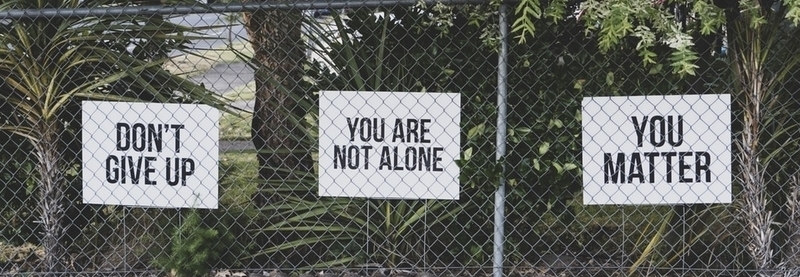Help for Domestic Violence and Abuse
Domestic violence and abuse is a set of behaviours and actions chosen by a perpetrator to make their “loved” one subordinate and live in fear in order to gain power and control over them.
We understand that speaking to us or other professionals will be a huge decision.
The shame and degradation that a victim/survivor feels when experiencing domestic abuse makes it inexplicably hard to come forward and ask for help. At Aurora, we see this as another extension of the power and control by a perpetrator. It makes up part of the behaviours of isolation that work so effectively to ensure survivors have nobody left to turn to apart from the perpetrator themselves.
We understand that it is incredibly hard to explain why you may feel frightened of your ex/partner or family member and it is even harder to learn to trust after your life has been pulled apart by domestic abuse. We understand that you may still love the person who is abusing you. We understand that the systematic drip-drip effect of trauma after living with an abusive partner slowly chips away at your self-esteem, we understand all of this and we understand how hard it is to disclose what is happening to you.
First and foremost, all you need to know about our organisation is that at #TeamAurora – #WeBelieveYou.
How do I know I’m in an abusive relationship?

The definition for domestic abuse in England and Wales is:
“Any incident or pattern of incidents of controlling, coercive or threatening behaviour, violence or abuse between those aged 16 or over who are or have been intimate partners or family members regardless of gender or sexuality. This can encompass but is not limited to the following types of abuse:
- psychological
- physical
- sexual
- financial
- emotional
Controlling behaviour is: a range of acts designed to make a person subordinate and/or dependent by isolating them from sources of support, exploiting their resources and capacities for personal gain, depriving them of the means needed for independence, resistance and escape and regulating their everyday behaviour.
Coercive behaviour is: an act or a pattern of acts of assault, threats, humiliation and intimidation or other abuse that is used to harm, punish, or frighten their victim.”*
This definition, which is not a legal definition, includes so-called ‘honour’ based violence, female genital mutilation (FGM) and forced marriage, and is clear that victims are not confined to one gender or ethnic group[1].
* For more information on coercive control please read our blog post here: The invisible noose.
For victims and survivors experiencing so-called ‘honour’ based violence/ FGM /FM’ please see this page.
This page deals with advice and information for people experiencing intimate partner violence.
We understand that it may be hard to see yourself and your situation in a government definition, so we have outlined below some of the ways in which domestic abuse can look and feel.
How do perpetrators behave?
Obviously violence both physical and sexual are factors in domestic abuse, but these do not occur in a vacuum. Perpetrators do not just use physical violence to exert power and control, they use other behaviours too. Violence is only one part of what makes a relationship abusive. Some perpetrators do not use physical abuse at all, they don’t need to, they do everything else to ensure their victims are terrified and subordinate.
Some common abusive/violent behaviours

The list is seemingly endless with ways in which perpetrators can exert power and control including: using finances, food, intimacy, sleep deprivation, isolation, degradation, shame, manipulation, and children.
Using your vulnerabilities is also really common eg. Using childhood trauma and previous abuse against you, and/or using mental health or substance misuse, self-harm issues against you.
What he might be doing
The following examples can fit into any abusive relationship, regardless of the sex or gender of the perpetrator – we have used the language of a male perpetrator and a female victim as this is statistically the most likely example of a domestic abuse relationship – we do support women and men and you can see more on that on our about us page. Here are a few common examples of the subtle ways in which perpetrators may behave:
- Policing what you say, who you speak to and when
- Putting you down and making threats
- He isn’t always abusive
It is important to know that this can be done in the most subtle of ways… it won’t always be overt and it might be hidden behind “banter” or “joking” if other people are around.
It can also be behaviours that are really hard to spot at first, for example, making it obvious that when you speak to your mum or best friend for prolonged periods the abuser gets moody or ignores you, or says things like “you change when you are with them” or “I just don’t think they like me, it is really hard for me when you go over there”.
These are common behaviours that start slowly and make up a much bigger picture of isolation and can result in little or no contact with your friends or family in the end.
In abusive relationships – before you know it you are in it.
Does he ever say things like “You are fat, ugly, worthless, a bad mum…”, “You can’t cope on your own.”, “Nobody will love you as much as I do”, “You will never be free of me, if you ever leave me I will find you”. These threats can be as overt as threats to kill, not just you but your kids, your friends or your family or the perpetrator will threaten to kill himself. This is a really common tactic and one that is incredibly powerful, it is also a high risk factor based on research[2].
Or he may constantly tell you that you are pathetic or can’t do certain tasks, sometimes the most basic of things leaves victims and survivors really doubting their own abilities. We understand this and we know how long it can take to get to grips with the ways in which you have been controlled by a perpetrator, it is so subtle it is hard to put a finger on. Perpetrators will always wrap up their behaviour in “love” and turn the blame for any extreme actions onto you so you are left feeling like everything that is wrong in the relationship is your fault.
Perpetrators aren’t always overtly abusive, they will often circumnavigate abusive episodes with showers of affection and promises to change. The first flourishes of the relationship are most often the most romantic you have ever experienced and you just want to get back to that place. The perpetrator will take you there again and again, but in an abusive relationship it never lasts, it is just another part of the abuse.
Often agencies only come into your lives after an “incident” and professionals find it hard to understand the complexities and patterns of abuse. Sometimes perpetrators can go months without being overtly controlling or physically abusive, it can feel like things have gone back to ‘normal’ and the person you fell in love with is back… or if you have left them you may be presented with a ‘changed man’ and promises for a new start. In our experience, this forms the overall pattern of the abusive behaviour, the fact that they are in control of how and when they exert power and control just shows that they are fully responsible for their actions. The periods of “romance” and “love” are all used to convince a victim that the abusive behaviours are just “one offs”, just “bad times” that can all be forgotten and not repeated, but only with the prerequisite that you as the victim change too.
If you would like to read in-depth about domestic violence and abuse behaviour, click here.
Physical violence
Physical Violence is often only perceived to be important at the more serious end of the spectrum. But violence ranges from, spitting, pushing, pinching, shoving, kicking, biting, restraining, urinating on a victim to punching, choking, drowning, strangulation, serious harm or murder.
Can the abusive change?
A perpetrator who really wants to change their behaviour can absolutely do so. They have the choice. Although in our experience many perpetrators promise they will change and these promises are empty ones.
If they are really serious they should access a Respect Accredited perpetrator programme and really work on taking responsibility for their actions towards you and any children involved with them as well. The onus is on them to change, it is all their behaviour. Not yours!
It is important if your partner or ex-partner is entering a programme[3] that you are supported through this too as the risk towards victim’s increases and it is also essential that the facilitators get the honest picture of the extent of the perpetrators abusive behaviour.
How you might be feeling:
- Poor mental health
- Lost and lonely
- Living with the trauma after an abusive relationship

Anxiety and depression are incredibly common responses when you are or have experienced domestic abuse. On our last Insights data set, 77% of our clients reported experiencing anxiety and 89% experience depression. This is perfectly natural as a bodily response to long term trauma. It may be used against you by the perpetrator and you may be worried about disclosing this to other professionals for fear of their response. When you speak to a specialist organisation please know that we understand this and you have nothing to be ashamed of.
The reason isolation works so well for perpetrators is that the endpoint is usually a place where the only person left in your world is the perpetrator himself. As a survivor of domestic abuse, the feelings of overwhelming loneliness can be so powerful as to be debilitating. You may feel you have nowhere to turn to and that nobody will understand and most importantly he has repeatedly told you that you can’t cope without him or that nobody will believe you. In fact, the only person who can comfort you is the perpetrator and you are locked in a cycle of what feels like endless despair.
We are here to tell you that none of this is true. We will listen, we will be here no matter what situation you are in. You do not have to want to leave for us to provide you a service. What is important is that you feel supported and that you are able to work with specialist agencies to reduce risk and gain the information you need to keep you as safe as possible.
It is really important to remember that the majority of our clients (71%) have already left their partner. We understand that leaving an abusive partner doesn’t necessarily end the abuse. We will work with you through your journey, no matter what the position of your relationship.
We understand that experiencing abuse is life-changing – This often takes years to get over, but we promise you can, although life may never be the same after experiencing violence and abuse from someone who is meant to love you. It is our experience that the strongest of women are survivors, it is always worth remembering that the abuse you have suffered doesn’t define you. It is part of something that was done to you, by someone who mentally and physically took over and controlled every part of your essence for a period in your life.
The fact that you are even reading this means you are still here, behind the fear, behind the rules, you know that your spirit is still alive and we are here to help you heal, should you feel able and ready to talk.
In time, you may decide to access therapeutic services and we are more than happy to give you the options of some amazing organisations who can help you locally.
Who can help if I am in an abusive relationship?

If you are in danger ALWAYS DIAL 999
- For Hampshire you can call the out of hours helpline – 03300 165 112
- The national Domestic abuse helpline is also open 24/7 – 0808 2000 247
- If you want advice on who to speak to in your area you can call us in office hours 02392 479 254
Other services we offer include:
- To find out how we can help if you have a stalker, click here.
- Want to know more about the services we offer those in the armed forces? Click here.
- We also work with victims and survivors of sexual violence, click here.
- To learn how we support female offenders, click here.
- Want to find out more about the IRIS programme? Click here.
.
How can Aurora help me if I am in an abusive relationship?
At Aurora we believe in non-judgmental support for survivors of domestic abuse, sexual violence and stalking.

Aurora’s out of hours helpline – 5pm to 8am Monday to Friday and 24hrs over the weekend 02394 216 816. Our DVA services include:
- Aurora New Dawn DVA cars™ (Hampshire wide)
- Armed Forces Advocacy (South East Focus, with some national/ international work)
- Women caught up in the criminal justice system
Aurora’s experience and expertise
We are a young organisation with a big voice – to learn more about our journey please see our about us page.
We are members of the End Violence Against Women Coalition and members of the Women’s Resource Centre – we have won multiple awards including receiving the National Diversity Award for Gender in 2015.
To find out more about who we are, click here – about us.
Domestic Violence Safety Planning:
It is really important to know that leaving an abusive relationship can be a very risky time. As evidenced by the Femicide Census 2018: of the women who were killed by their ex-partner in 2017, 55% were killed in the first month and 87% were killed in the first year. If you are planning on leaving, please reach out and speak to a specialist organisation – we can help you with a safe exit strategy and will work hard with you to reduce your risk of serious harm or murder.
These are some safety measures you can use to support you and your children:
- Keep your phone charged and on you at all times.
- Chat to neighbours – give them your permission to call the Police.
- Arrange where you might go if you have to leave urgently.
- Create a code word to use with friends, family, neighbours and support workers to let them know you are in danger without the abuser finding out. If possible, agree on a secret location where they can pick you up.
- Memorise the phone numbers of friends, family, or helplines. If your partner takes your phone, you will still be able to contact loved ones or helplines for a safe place to stay.
- Keep an alternate mobile phone nearby. Try not to call for help on your home phone or on a shared mobile phone. Your partner might be able to trace the numbers. If you don’t have a mobile phone, you can get a prepaid one.
- If you have children, teach them how to dial 999 and make up a code word that you can use when you need help.
- Try to save money so that you have bus or taxi fares in an emergency.
- Get an extra set of keys for the house and car and keep these in a safe place, with money and anything else you may need should you have to leave quickly – (see the Safety Bag List below).
- Talk to your children and let them know it is not their fault.
- Talk to trusted friends, relatives, your doctor or nurse about how you feel.
- Ask your doctor how to get extra medicine or glasses, hearing aids, or other medically necessary items for you or your children.
- Consider opening a savings account in your name.
- Protect your online security as you collect information and prepare. Use a computer at a public library to download information, or use a friend’s computer or mobile phone. Your partner might be able to track your planning otherwise.
- Always try to take your children with you or make arrangements to leave them somewhere safe if that is not possible.
- Make plans for pets, if you are unable to take them with you.
- Consider visiting your local Citizens Advice Bureau or a solicitor to discuss what options are available to you.
- If possible, try to get any potential weapons out of the house.
- Try to take with you any evidence of abuse or violence if you leave your partner. This might include threatening notes from your partner. It might be copies of police and medical reports. It might include pictures of your injuries or damage to your property.
- Try to do things which would get you out of the house, such as walking your dog, putting out the rubbish or going to the shops to practice how you would leave.
- Turn the location off on your phone. Snap Chat – ghost mode.
What to put in your safety bag:

- Birth certificates, Social Security cards and passports or immigration papers for you and your children.
- Health insurance cards for you and your children.
- Financial records, including recent bank statements.
- Housing documents, such as rental agreements, mortgage statements, or the title or deed.
- Your most recent credit report.
- The title or lease paperwork for your car.
- The past two years’ tax returns.
- A written copy of phone numbers or important addresses in case you cannot get to your mobile phone or address book.
- Medicine for you and the children.
- Any sentimental items and special toys for children are always worth grabbing if you can and if you have the time.
Consider leaving a bag with a trusted friend or relative containing the items you would need if you had to leave urgently. Also consider who may lend you money in an emergency.
Domestic violence and the law

Domestic abuse in itself is not a criminal offence – but there are a plethora of other crimes on the statute book that can be used against a perpetrator. Including all those for physical violence, sexual violence and stalking.
The most important legal change for victims and survivors of domestic abuse was brought about by a collective of activist women and organsiations in 2015. Laura Richards, founder of Paladin National Stalking Advocacy Service, Women’s Aid and the Sara Charlton Foundation, were successful in bringing about the law change that made Coercive Control a criminal offence[4].
Section 76 of the Serious Crime Act States:
Controlling or coercive behaviour in an intimate or family relationship
- (1) A person (A) commits an offence if—
- (a) A repeatedly or continuously engages in behaviour towards another person (B) that is controlling or coercive,
- (b) at the time of the behaviour, A and B are personally connected,
- (c) the behaviour has a serious effect on B, and
- (d) A knows or ought to know that the behaviour will have a serious effect on B.
- (2) A and B are “personally connected” if—
- (a) A is in an intimate personal relationship with B, or
- (b) A and B live together and—
- (i) they are members of the same family, or
- (ii) they have previously been in an intimate personal relationship with each other.
It is important as a survivor that you understand the importance of this law change. It does not take physical abuse for your partner or ex-partner to be breaking the law.
Feeling frightened of your partner or ex-partner, walking on egg shells, being concerned about what might happen next is not ok, you are not to blame and you do not have to suffer in silence. Contact us.
Aurora New Dawn
Speak to your MP about ensuring that specialist victims domestic violence and abuse services are funded in your area. Click here to find your MP
Want to help us raise awareness? Click here to share this page on Facebook
Are you affected by any of the issues mentioned here? If so, please get in touch!
Click here to contact Aurora
Want to find out more about us? Click here to find out more about Aurora
Want to donate to our cause? 💜 Click here to support us!
